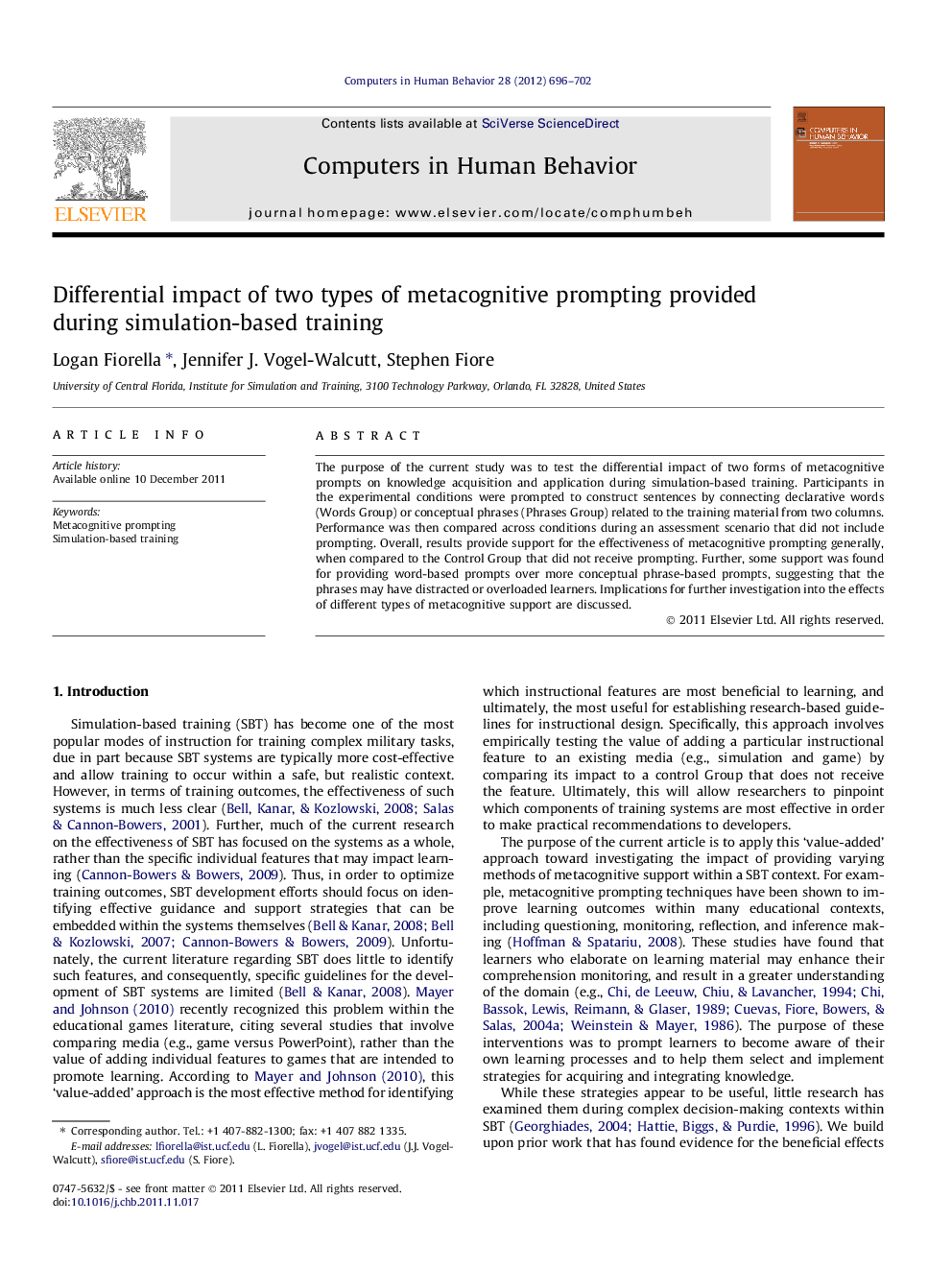| Article ID | Journal | Published Year | Pages | File Type |
|---|---|---|---|---|
| 351661 | Computers in Human Behavior | 2012 | 7 Pages |
The purpose of the current study was to test the differential impact of two forms of metacognitive prompts on knowledge acquisition and application during simulation-based training. Participants in the experimental conditions were prompted to construct sentences by connecting declarative words (Words Group) or conceptual phrases (Phrases Group) related to the training material from two columns. Performance was then compared across conditions during an assessment scenario that did not include prompting. Overall, results provide support for the effectiveness of metacognitive prompting generally, when compared to the Control Group that did not receive prompting. Further, some support was found for providing word-based prompts over more conceptual phrase-based prompts, suggesting that the phrases may have distracted or overloaded learners. Implications for further investigation into the effects of different types of metacognitive support are discussed.
► We investigated the effects of two types of metacognitive prompting provided during simulation-based training. ► Metacognitive prompting, in general, was found to increase learning outcomes. ► Some support was also found for providing word-based over phrase-based prompting. ► The implications of this study for future research on metacognitive prompting are discussed.
